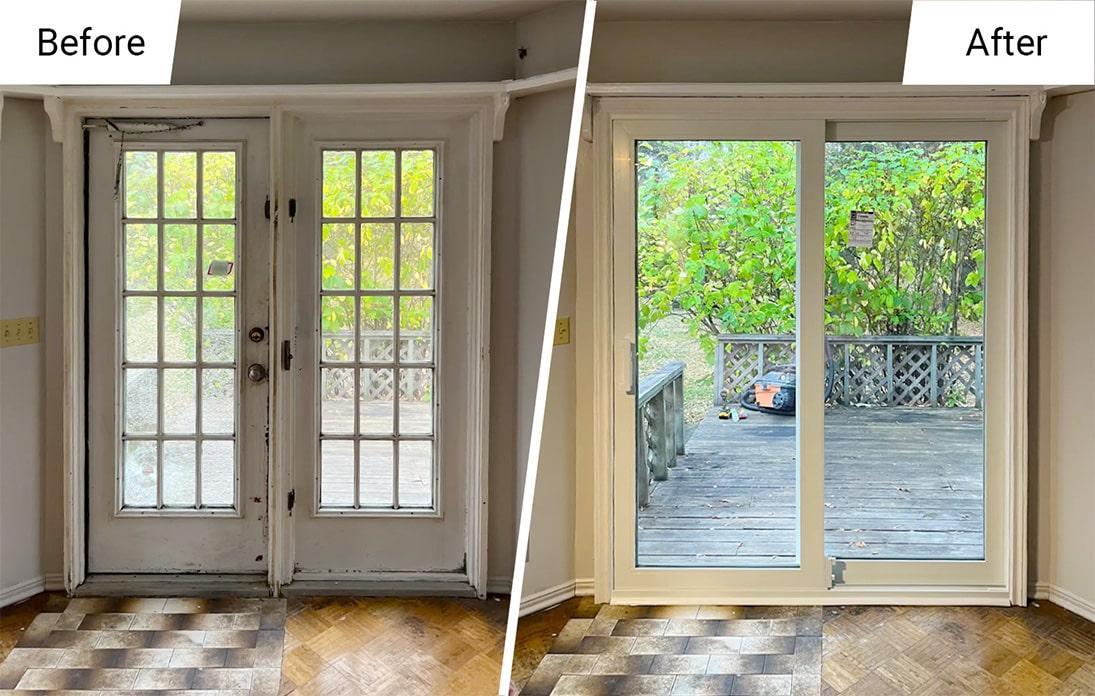

Window Replacement Contract: All You Need to Know Before Signing It
Jan 10, 2025
8 min read
276
You’ve done your research on different companies and different kinds of vinyl windows, and now you’re ready to sign a window replacement contract. But before you do it, there are a few things to consider first.
Contracts often become a point of contention between the window company and the homeowner, because they are ultimately the document that will rule out who is right and who is wrong. That is because in the event of a dispute everything will come down to what is written in the contract.
While a project consultant may discuss a lot of things with you, and even heed to extra things you’re asking for, the company is ultimately only responsible for what is written in the contract. Sometimes this happens on purpose and a project consultant will verbally agree to your demands knowing full well they can’t fulfill them and not put them on the contract. Other times, things get forgotten and it may simply be a human mistake that something you were promised did not end up on paper.
In either case, it is up to you to go over the contract carefully before signing and ensure that everything you wanted is put down in writing.
So read on to learn all the common pitfalls about window installation contract and how to avoid them when dealing with your contractor!
Window Replacement Contract 101: What to Look Out For?
Before diving into many specifics that can be associated with window contracts, here are a few basic things to make sure that everything you want is clearly written on the contract for your new windows and doors:
- Go through the details for each window with the representative to make sure that the windows you will be ordering are, in fact, the ones that you want.
- If there are extras that you want to be done such as blinds or shutters removal and installation, that is something that you will most likely need to go over and add to the contract.
- Make sure that the types of windows, window styles, and the type of installation are all clearly written out in the contract.
- There should be a date for when the entire project is to be completed.
- The price on the contract should be the final price that you pay for the windows. There shouldn’t be hidden fees, and the company should not be hounding you for more money once the project is finished.
- Be sure that every point of agreement between you and the contractor is clearly written out in the contract.
- Make sure the contract is signed by both parties before anything work happens.
Go over all warranty terms with the contractor before you sign off. If there are issues that you need clarification on, ask questions and get the clarifications in writing.

Can You Cancel a Contract After Signing It?
For whatever reason, you may want to cancel a contract. Regardless of why, there are laws in Canada that protect your rights as a consumer to do so. By law, you have 10 days from the day the contract is signed to cancel it and receive a full refund.
Most companies won’t, and shouldn’t begin to process and manufacture your custom windows until that time period has passed. In some cases you may need to submit a written confirmation that you want your contract cancelled, but most of the time it’s as simple as giving your sales representative a call.

If a contract is cancelled within the ten days, the company isn’t allowed to hold any of your money back. Although this may not be overtly stated in your contract, ask your project manager about the 10-day cancellation period BEFORE signing the window installation contract.
Usually, if homeowners want to cancel a window replacement contract, they must submit a written intent within the allotted period. Some window contractors require a physical letter as a precaution for their legal department, while bigger local brands are usually okay to get just a personal e-mail.
However, all these should be clarified before initiating the agreement. If everything went smooth, the company will refund your money within 15 days of receiving your cancellation request.
Always Double-Check Energy Specifications in Your Window Contract
When reviewing your window replacement contract before signing it, pay close attention to the energy specifications of the windows. Details like the U-factor, Energy Rating (ER), and the type of glass (e.g., Low-E coatings or gas fills) significantly impact the efficiency and cost of your windows. Key points to verify in the contract:
- U-factor: Indicates insulation performance; lower numbers are better.
- Energy Rating (ER): Combines insulation, solar heat gain, and air leakage performance. The minimum rating should be 34.
- Glass type: Double or triple-pane with features like Low-E coatings or argon gas fills.
- Energy Star label
Ensure the specifications match the energy efficiency levels you were quoted. If the contract lacks these details or promises less efficiency for the same or higher cost, request clarification or compare other window contracts for better options.
Ask for a Window Installation Warranty Template
The warranty is one of the most critical components of any window replacement contract and its supplementary documents. Homeowners should ensure the warranty terms are clearly outlined in writing before agreeing to sign. Just as you can request a window installation contract sample, you can also ask for a warranty draft to review the coverage.
A strong warranty eliminates worries for decades. The best case scenario is to look for a 25 years warranty on both the product and labour, like Ecoline offers, to guarantee peace of mind and avoid future expenses if issues arise.
Tips for evaluating warranties:
- Read the fine print for exclusions or limitations.
- Ask questions about unclear terms.
- Ensure you’re satisfied with the coverage and conditions before signing.
A well-documented warranty ensures protection and confidence in your investment for many years, so it should be carefully and thoughtfully reviewed.
Check The Windows After the Installation
You can save a lot of money and time by ensuring the units delivered and installed are the same as specified in your window contract. Double-check the style, size, and certification labels on all the windows.
Inspect the window glass to know if it is double or triple-pane (ask installers about the low-E coating, spacers, and gas fills) and have appropriate labels on the unit. One common, easy way to tell if your window is triple pane is to do the “reflection test.” Take a solid object like a coin, holding it perpendicular to the glass surface. Then, see how many reflections of the coin are reflected in the glass. You should be able to tell whether or not the glass is a triple or double pane. If there are three reflections, it is triple. If there are two, it is double
Don’t hesitate to ask any questions before signing a contract, and make sure the representative goes over all the specific details involving your replacement project.
F.A.Q
Can I change my mind after signing a contract?
Absolutely, by law you have 10 days to cancel a window replacement contract and get a full refund. But make sure you notify the company by sending a physical letter or an email (as agreed upon with your representative).
Can I check the window installation contract template or sample?
Yes, you can ask your company to send you a sample of the potential window replacement contact along with your quote for to carefully peruse it before signing.
1750 Coast Meridian Rd #102,
Port Coquitlam, BC V3C 6R8
100, 17866 106A Avenue,
Edmonton, AB, Canada,
T5S 1V3
3307 Dunmore Rd SE #12,
Medicine Hat, AB,
Canada, T1B 3R2
2081 Merivale Rd #201, Ottawa, ON, Canada, K2G 1G9
by appointment only
109 Ilsley Ave Unit #3, Dartmouth,
NS, Canada, B3B 1S8








